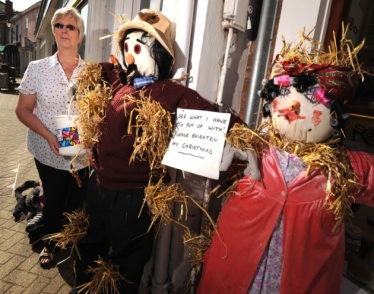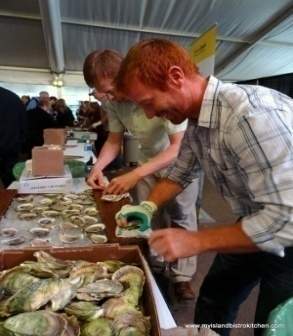9 класскарточки грамм по модулм. Дидактический материал к учебнику "Spotlight", 9 класс (комплекс лексикограмматических упражнений)
 Скачать 0.89 Mb. Скачать 0.89 Mb.
|
|
«Дидактический материал к учебнику “Spotlight”, 9 класс» (комплекс лексико-грамматических упражнений) Автор: Притыченко З.Л., учитель английского языка Горловской ОШ I-III ступеней №12 с углубленным изучением отдельных предметов Card 1 (Module 1, Unit 1a) In each line underline one word that doesn't belong to the group. to celebrate, a fireworks display, an animal shelter, a colourful parade; household chores, to dress up, a carnival, a change of clothes; a cooking contest, enter the competition, to take place, a space station; a carnival, a nightmare, pancakes, a big bonfire. Look at the pictures and names of the festivals. Match the name of the fest with the picture.
Celebration of Light, Vancouver, BC; March of the Scarecrows, Belgium; Maslenitsa, Russia; Splatfest, Spain; International Shellfish Festival, Prince Edward Island. Choose the word that best completes the sentences from the list below.
Over the years, this organization has … for local charities. Why don't you take part in this …? I'm sure you will be a winner! All the girls were excited to see Disney princesses at that colourful…. Lots of festivals have … I think you should take a spare … on your camping trip. I believe that it's a … idea to enter the… What is wrong with these sentences? Find and correct the mistakes. March of the Scarecrows is a huge food fight that has been a strong tradition in Valencia since around 1945. There is always a big bonfire at the end of Maslenitsa carnival week to say hello to summer. The night sky burst with colour when a cooking contest began. All the festival-goers eat tomatoes for Maslenitsa. You need raise money for local charity if you take part in Splatfest. Every year on 6th October, the central market square of Brussels becomes full of people made of sand. Card 2 (Module 1, Unit 1b) Unscramble the words given in bold print. Itusrnipetos is a belief in things or events that bring good or bad luck that has no scientific explanation. Seeing a wonboiar when it isn't raining is very good luck. If a dilabyrd lands on your hand it is good luck. Killing a disper is bad luck. Seeing a hosonitg star is very good luck. Some people believe that walking under a dalerd is bad luck. 2. Complete the superstitions below filling in the gap with an appropriate preposition. 1. Giving knives or things that cut _____a wedding present is considered a bad luck. As In After Before 2. Walking _____ a ladder is considered to be a bad luck. Away At With Under 3. Get out of the bed _____ the same side that you get in to avoid bad luck. With On In By 4. It’s a good luck to toss a pinch of salt _____one shoulder. Over Onto Off In 5. It is good luck if a ladybird lands ____ your hand. In On Under Off Match two parts of an expression and complete the sentences using these expressions: load a) star lucky b) clover shooting c) of rubbish old wivesʾ d) charm believe in e) superstitions four leaf f) a mirror break g) tales Do you _________________? - Yes, I think that superstitions are an important part of our life! Do you know that walking under the ladder is bad luck? – I think you should pay less attention to _______________. If you see a ______________ it is very good luck. I found a _______________ and later I found 10£ in the street. To __________________ means 7 years' bad luck. I think that all the superstitions are _________________. I am quite superstitious and I never go anywhere without my ___________. Card 3 (Module 1, Unit 1c). Grammar Present Tenses 1. Complete the sentences with the present simple or present continuous form of the verbs in brackets: She (run) because she's late for her lesson. Our teacher always (give) us lots of homework. We (not want) to go to the street parade. What time (you / meet) Pete tomorrow? I (not work) today. I'm on holiday. People (speak) English in Jamaica. Archie (not use) his computer at the moment. (Tony / live) near the park? 2. Complete the sentences below by putting the verb in brackets into the present perfect simple or present perfect continuous. 1. I (paint) this room for five days now. It's a never-ending job. 2. How long (you/know) Mike? 3. I (have) this watch for twenty years. It's as accurate as it was the day I bought it. 4. I (never/be) to Sweden. 5. How long (you/live) in this house? 6. Hi, John. Sorry I'm late. I hope you (not/wait) long. 7. So, Michael, what (you/do) since I last saw you? 8. It (rain) all day today. 9. This strategy seems to be good. Sales of our products (increase) for some time. 10. This manager (visit) our branch office three time so far this year. 3. Choose the correct present form: 1. What's that noise? – Jason …(have) a birthday party. a) have had b) is having c) has 2. More and more people … (go) to university these days. a) are going b) go c) have gone 3. Who …. (use) my MP3 player? - I have. a) uses b) is using c) has used 4. David and Mary …. (go) out together now for nearly five years. a) have gone b) go c) have been going 5. Kate … (not finish) painting the flowers yet. a) has not finished b) doesn't finish c) isn't finishing 6. Den … (look) for his pen-knife at the moment. a) has looked b) is looking c) looks 7. Nick … (play) a computer game for two hours and he is still playing. a) plays b) is playing c) has been playing 8. Are you going to the concert on Saturday night? - Yes. Actually, I.... (already/buy) the tickets. a) have already bought b) buy c) have been already buying Adverbs of Frequency |






